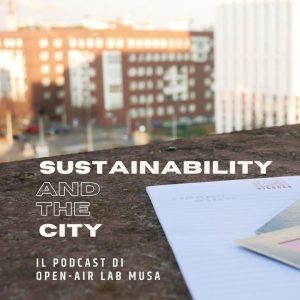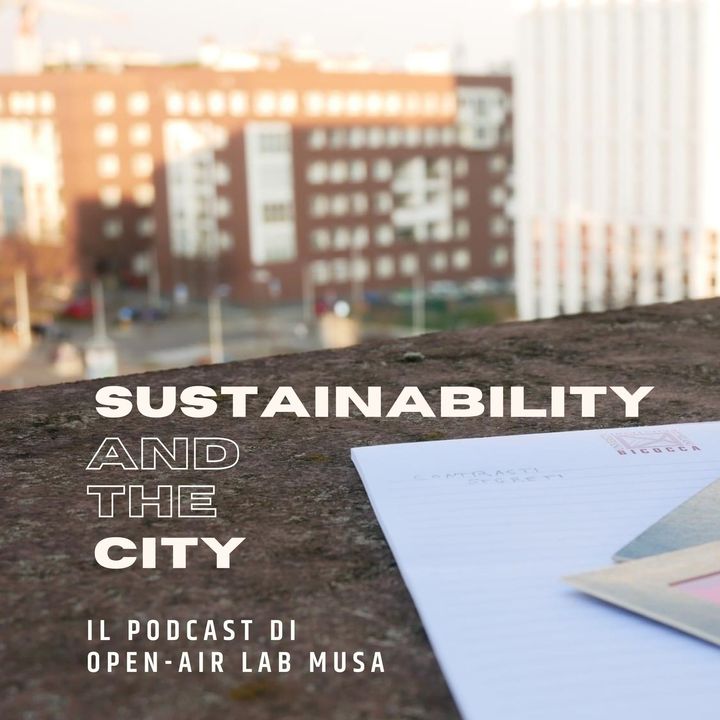 Urban Sustainability. Two words that, today more than ever, resonate as a categorical imperative in the minds of city dwellers and urban policy makers. But what does it truly mean? To shed light on this complex and multifaceted concept, with the “Open-Air Lab” research group at the University of Milan – Bicocca, we embarked on a multidisciplinary journey, engaging in dialogue with experts and scholars from diverse academic and professional backgrounds.
Urban Sustainability. Two words that, today more than ever, resonate as a categorical imperative in the minds of city dwellers and urban policy makers. But what does it truly mean? To shed light on this complex and multifaceted concept, with the “Open-Air Lab” research group at the University of Milan – Bicocca, we embarked on a multidisciplinary journey, engaging in dialogue with experts and scholars from diverse academic and professional backgrounds.
This gave rise to the podcast “Sustainability and the City,” which gathers the voices and ideas of a broad panel of experts – in the first season, biologists, economists, physicists, sociologists, lawyers, geographers, and engineers – to explore how Milan, the urban laboratory par excellence, can become a model city in terms of livability, economic sustainability, environmental responsibility, and social justice.
In various episodes, we discuss biodiversity and urban greenery, as well as “access to the sky” to promote scientific education, social equity, and inclusion to build a more democratic future, as well as active citizen participation, such as in the design of squares and public spaces. And much more, all waiting to be discovered episode by episode.
In summary, what emerges is a picture rich in opportunities and challenges. A mosaic of ideas that not only maps the present but also charts the coordinates for the cities of tomorrow. And Milan, with its vibrant academic community and tradition of innovation, stands as an ideal testing ground for these urban experiments.
In this ecosystem of talent, passion, and interdisciplinary collaboration, Milan emerges not only as a laboratory for urban sustainability but as a beacon that lights the way to the cities of the future.
This intellectual journey was made possible thanks to the MUSA project – Multilayered Urban Sustainability Action, an initiative funded under the European program NextGenerationEU, specifically PNRR Mission 4 Component 2 Investment Line 1.5.
In particular, the podcast is produced by the “Open-Air Lab” research group at the University of Milan – Bicocca, composed of Francesca Antonacci, Veronica Berni, Nicoletta Ferri, Monica Guerra, Letizia Luini, Patrizia Luen Ribolla, Angela Rinaldi, Francesca Rota, Giulia Schiavone, Maddalena Sottocorno, Manuela Tassan, and Franca Zuccoli. This diverse team of talents has not only made this project possible but also extraordinarily rich and multifaceted.
A special thanks to Radio Bicocca and Elena Gemma Brogi for their invaluable technical collaboration.





